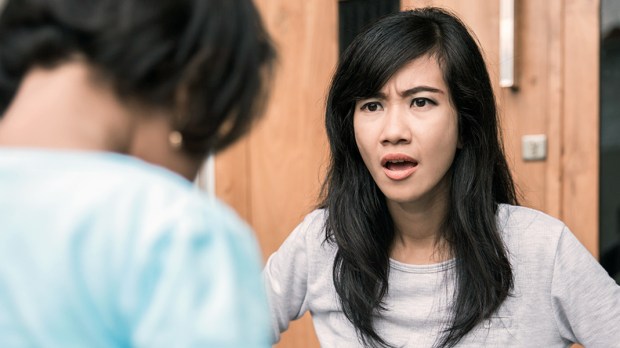I used to yell at my kids all the time. I’m not proud of this fact — it’s one of my deepest regrets as a mother. But the truth is that I had no idea how to effectively discipline my kids, and this helplessness regularly left me feeling frustrated, overwhelmed, and angry. So I yelled. And yelled. And it never accomplished a single thing.
Instead, yelling at my kids upset them — and me. They would get scared and start crying, and I would immediately feel guilty and remorseful. I apologized over and over before I finally managed to get hold of my emotions and stop yelling at them … which is not to say I’m perfect. I still have bad days where I yell before I can stop myself, but these episodes are fewer and far between now.
As I started to scale back the yelling, though, I noticed something interesting. While yelling about something never once prevented my kids from repeating that same behavior (sometimes minutes later), praising and thanking them for doing something right universally guaranteed that they would do it again.
It turns out that my kids aren’t trying to drive me crazy by breaking rules and furniture — they actually want to please me. Moreover, they want to do good things. It’s just hard for them to learn how to build those habits, in the same way it was so hard for me to learn to break my habit of yelling at them.
The New York Times highlighted this connection between positive reinforcement and positive behavior in a recent article about why yelling at our kids is counterproductive and potentially damaging. But they went a step further and asked Dr. Alan Kazdin, professor of psychology and child psychiatry at Yale, to outline the simple, effective strategy he designed to build good habits by literally changing children’s brains:
“If the goal of the parent is catharsis, I want to get this out of my system and show you how mad I am, well, yelling is probably perfect,” Dr. Kazdin said. “If the goal here is to change something in the child or develop a positive habit in the child, yelling is not the way to do that.” There are other strategies, and they don’t involve screaming like a maniac.
Many think of positivity as a form of laziness, as if parents who are positive aren’t disciplining their children. But not yelling requires advance planning and discipline for the parents, which yelling doesn’t. Dr. Kazdin promotes a program called the ABCs, which stands for antecedents, behaviors and consequences. The antecedent is the setup, telling a child, specifically, what you want them to do before you want them to do it. Behaviors are where the behavior is defined and shaped, modeled by the parent. And the consequence involves an expression of approval when that behavior is performed, an over-the top Broadway-style belt-it-to-the-back-row expression of praise with an accompanying physical gesture of approval.
It sounds easy enough, but I know it’s not. I’ve known for a while that the hardest part about helping my kids build good habits is to model for them — kids learn by imitation, and if I leave my shoes in the middle of the kitchen floor every day, guess where they’re going to leave their shoes every day? (Hint: it won’t be the closet.)
But for a while I’ve delayed attempting to help them build good habits until I had managed to perfect ALL THE GOOD HABITS … which, frankly, is dumb. After all, I’m human just like my kids. I make mistakes. But how much more effective would those mistakes be if they’re corrected by my kids, because we’re attempting to build good habits together?
According to Dr. Kazdin, this technique is highly specific — parents must be effusive in their praise and exact about what they are praising, and they must hug the child or give them some sort of physical, non-verbal positive praise. One of the things I like about this is that I can already imagine it becoming a family game … the kids will start rolling their eyes eventually when I do it, but they will never fail to be delighted by the opportunity to praise me in the exact same way when I start putting my shoes where they belong.
I also like that I can start small, by tackling one specific habit to change first instead of overwhelming my kids with extensive chore charts. And I know exactly which habit I’m going to start with. (Get ready, stray shoes, we’re coming for you.)

